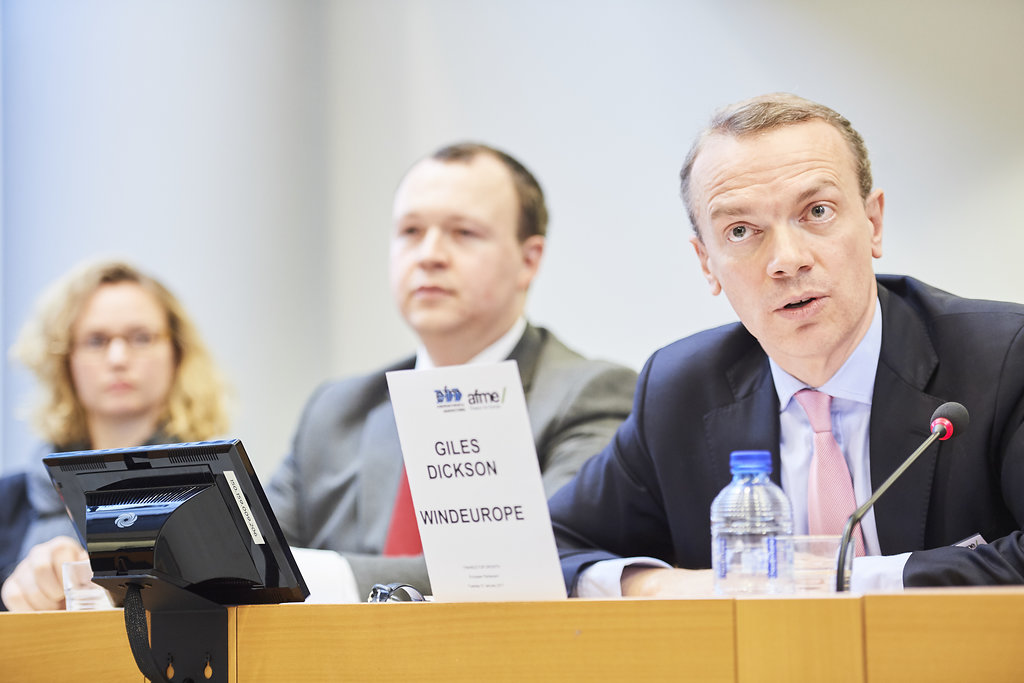News
WindEurope highlights benefits of Juncker Plan in European Parliament

1 February 2017
WindEurope CEO Giles Dickson spoke in the European Parliament last night at an event on finance and manufacturing organised by the European Forum for Manufacturing and the “Finance for Europe” Association. MEPs from all parties and a wide range of countries took part. The focus was how the Juncker Infrastructure Investment Plan (“EFSI”) supports manufacturing in Europe and how to improve EFSI as it moves into its second phase to 2020.
Dickson described how wind energy had received over €1bn finance from EFSI, which had leveraged a further €5bn in private investment. He showed how this created manufacturing jobs, with Siemens supplying the Belgian EFSI-finance offshore wind farm – investing nearly €400m in two new offshore turbine factories creating 2,000 direct jobs.
He applauded the plan to commit 40% of new EFSI finance to “climate and energy” projects, to extend the scheme to EU neighbours and to build in an advisory hub for project developers. The latter would help diversify the geographical distribution of EFSI investments. Regional and cross-border investment platforms would also improve the geographical spread – building on the example of the Marguerite pan-EU equity fund.
Dickson also stressed the importance of the European Investment Bank (the channel for EFSI investments) focusing on equity finance and leaving debt finance to the commercial banks.
Finally, he highlighted the importance of EU Member States supporting EFSI investment, by ensuring stable policy and regulatory frameworks that support investment and reduce the costs of capital. He explained how the WACC on wind investment varies from 4% in Germany to 8% in Italy, 10% in Spain and 12% in Greece – mainly because investors perceive insufficient certainty and too much risk in the support and regulation in force in the relevant countries.

